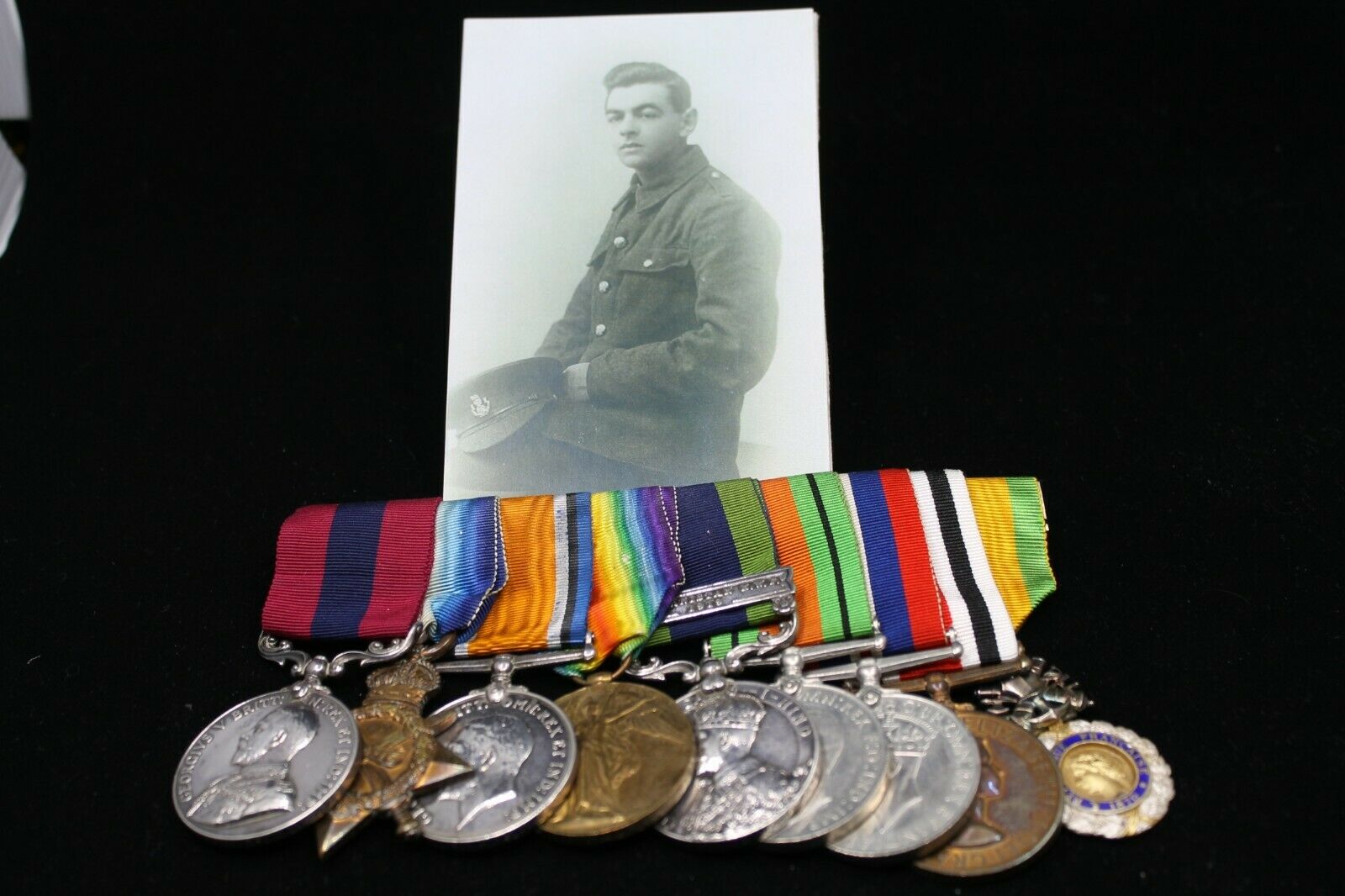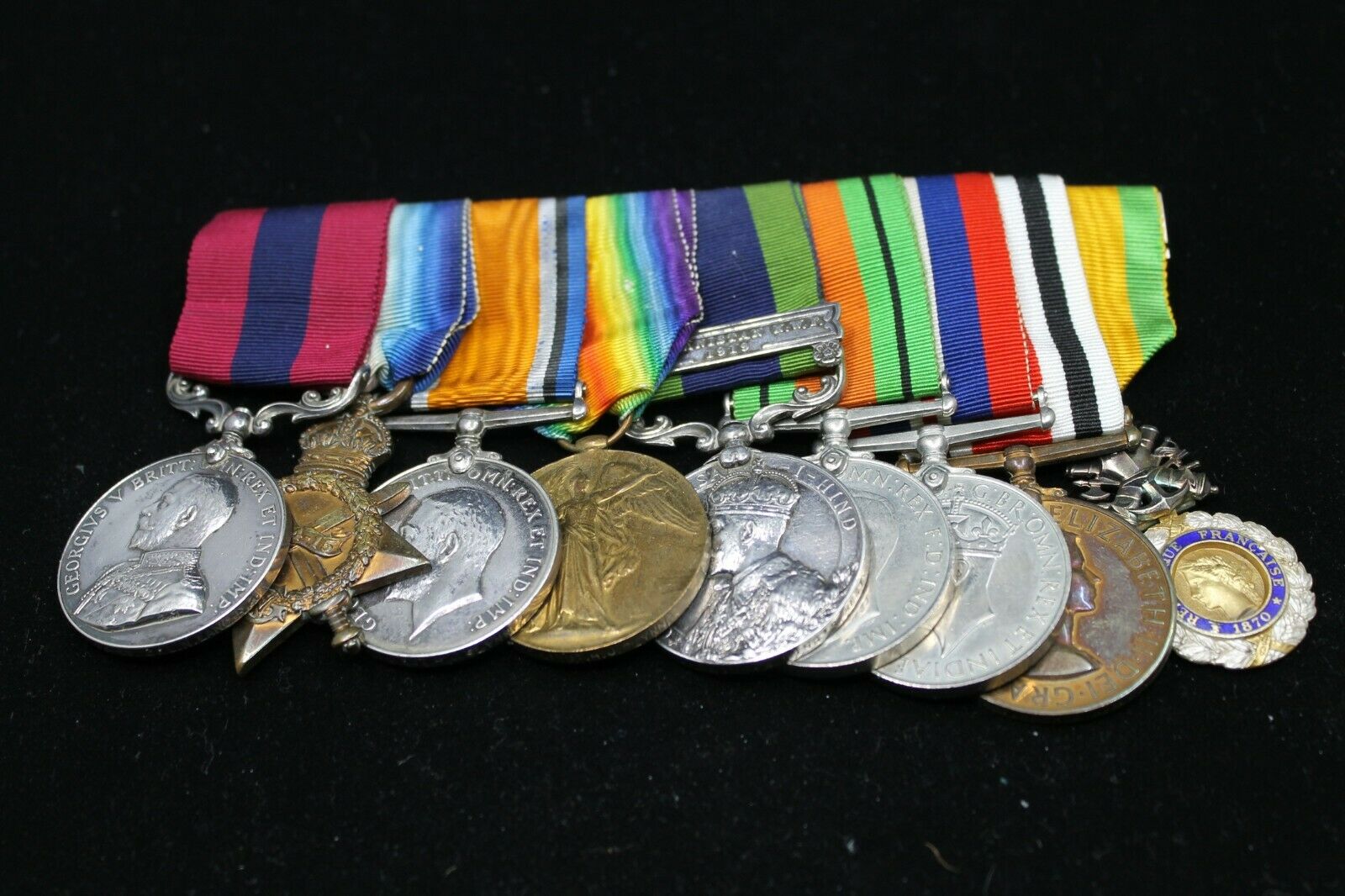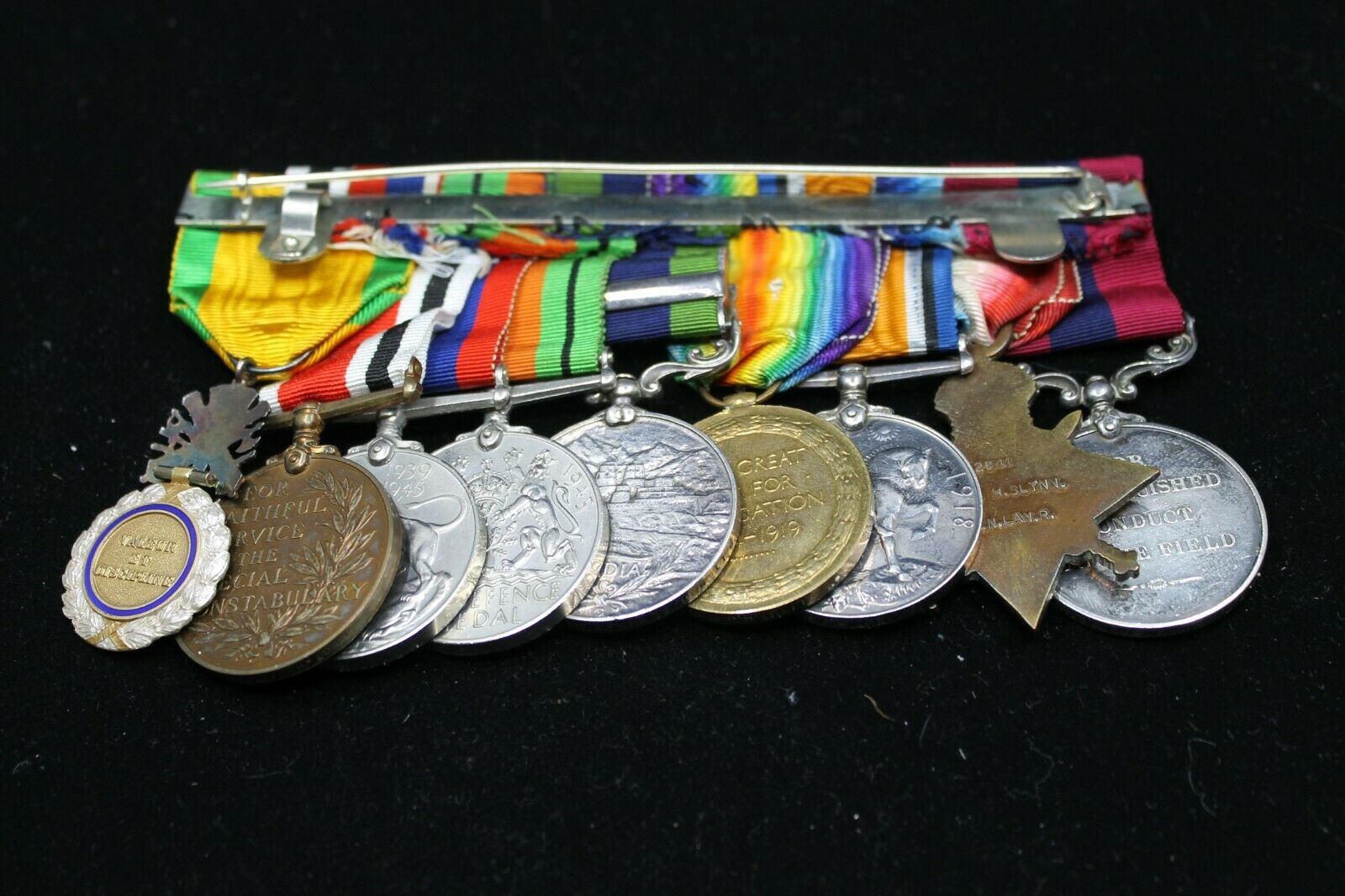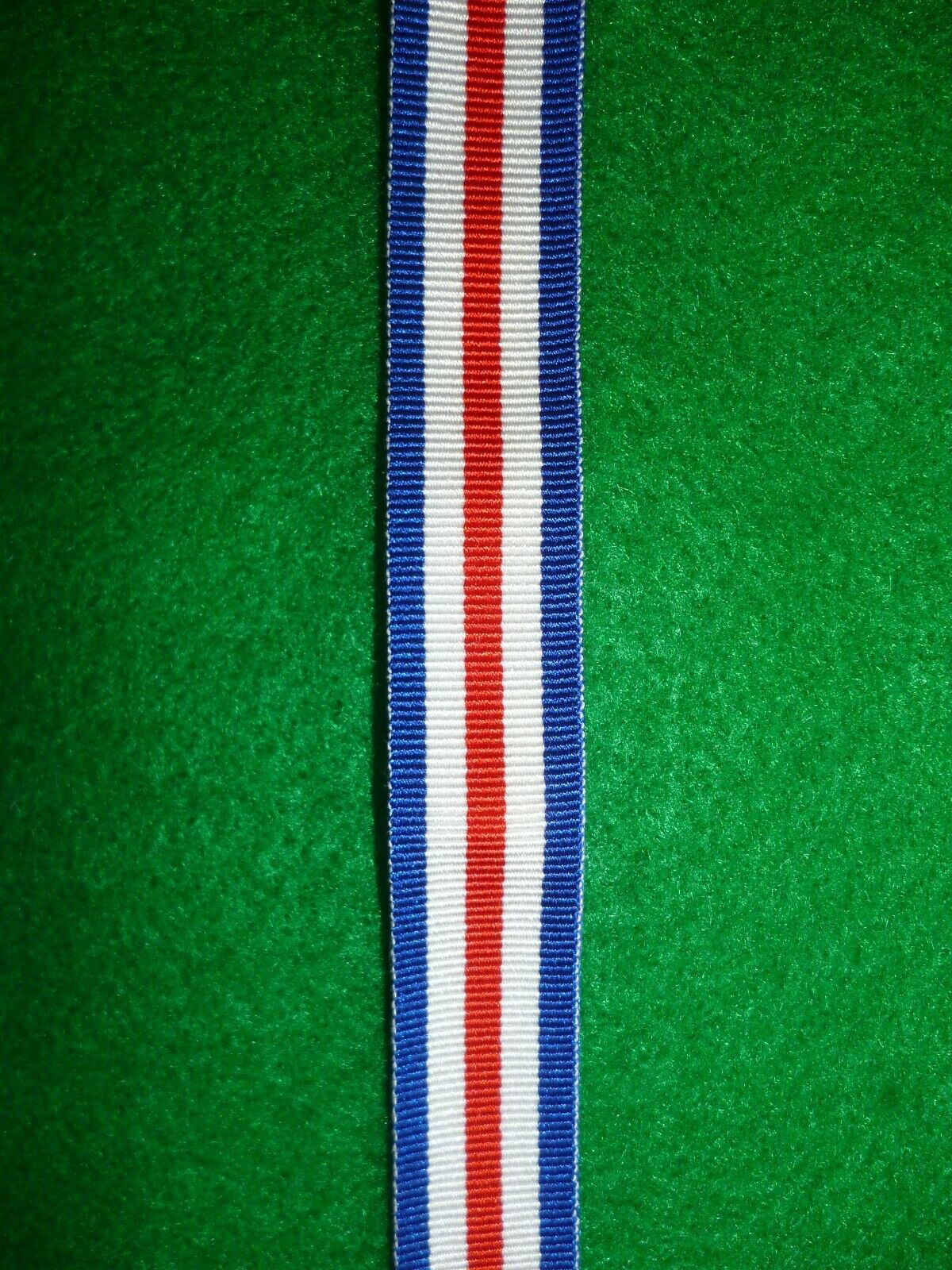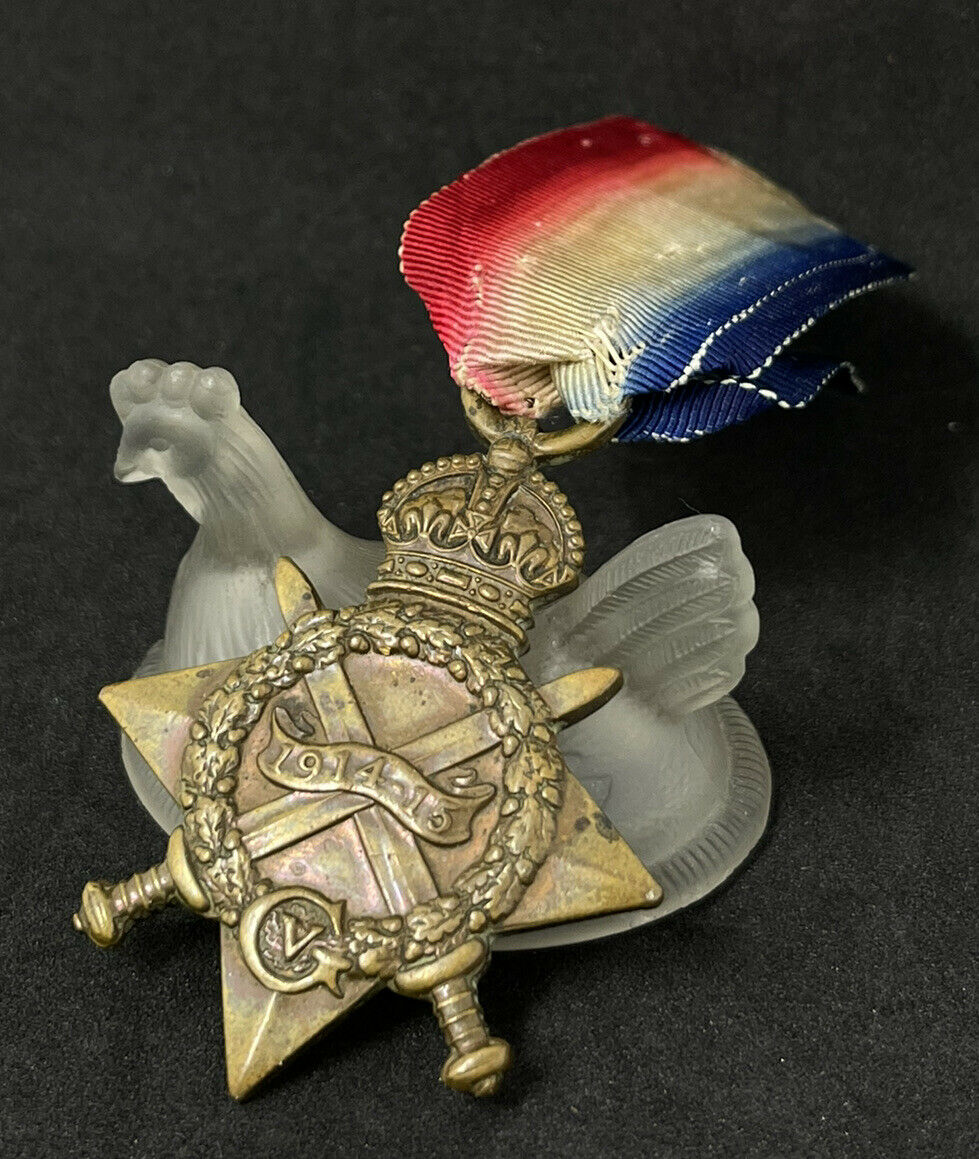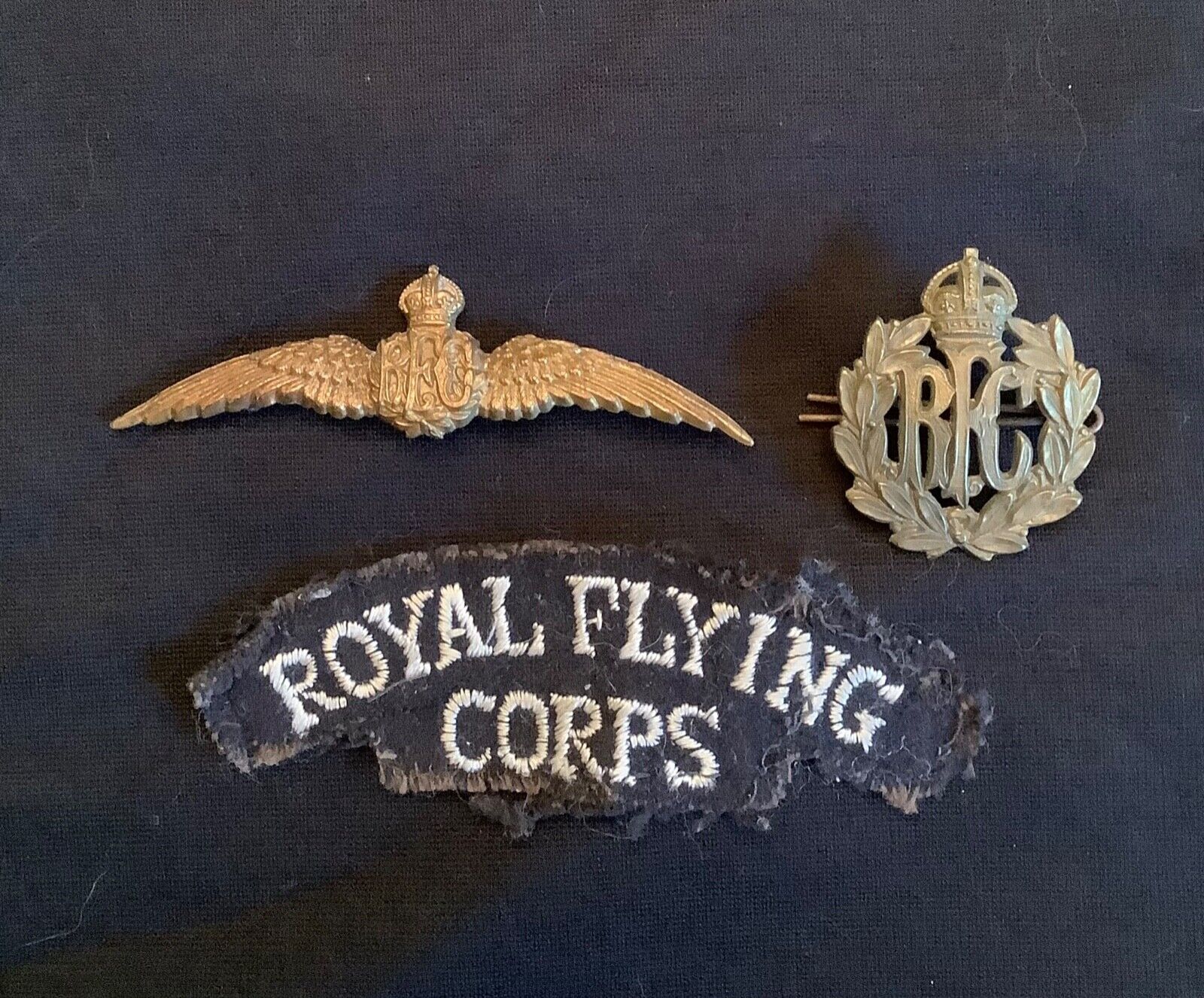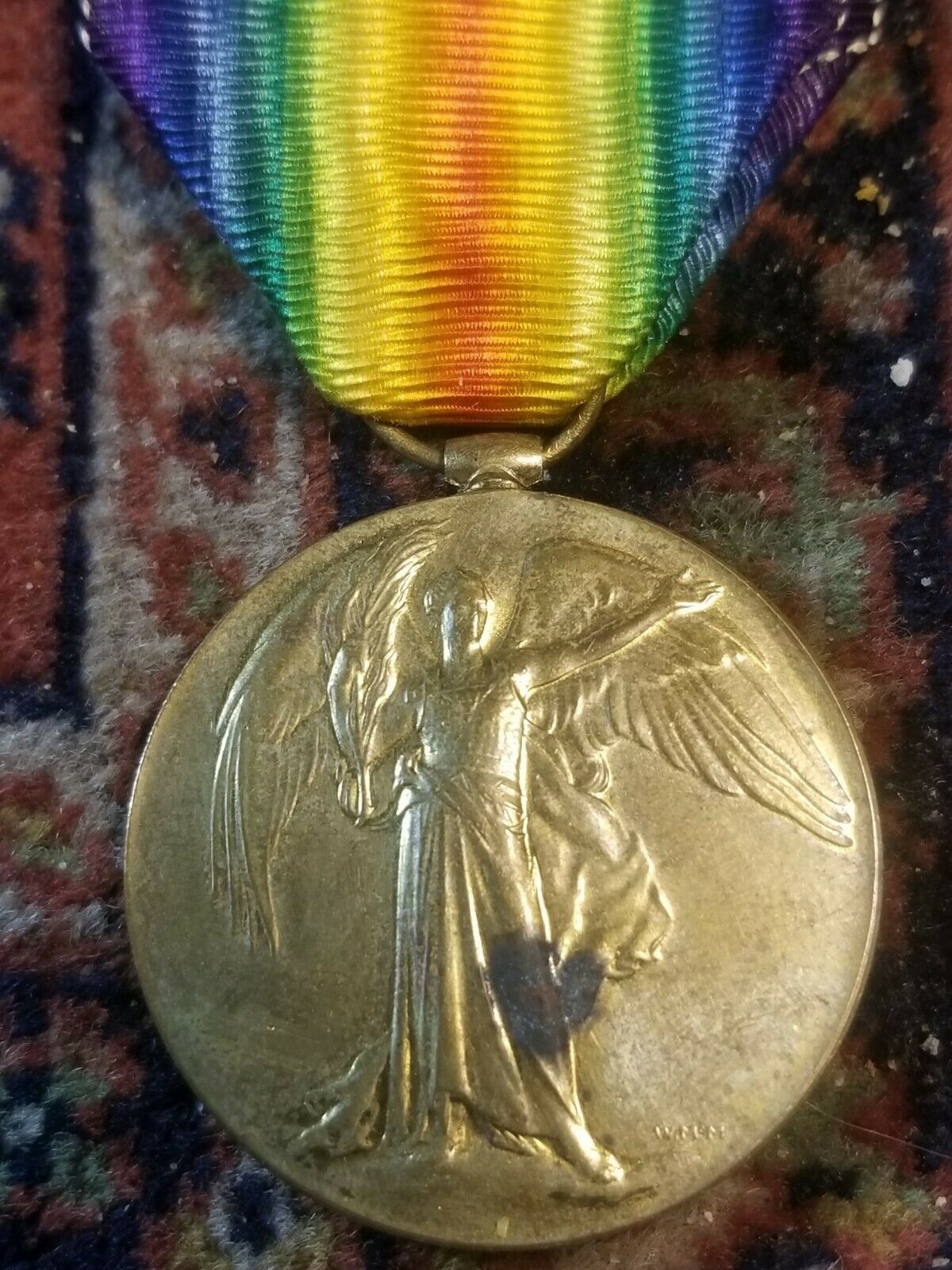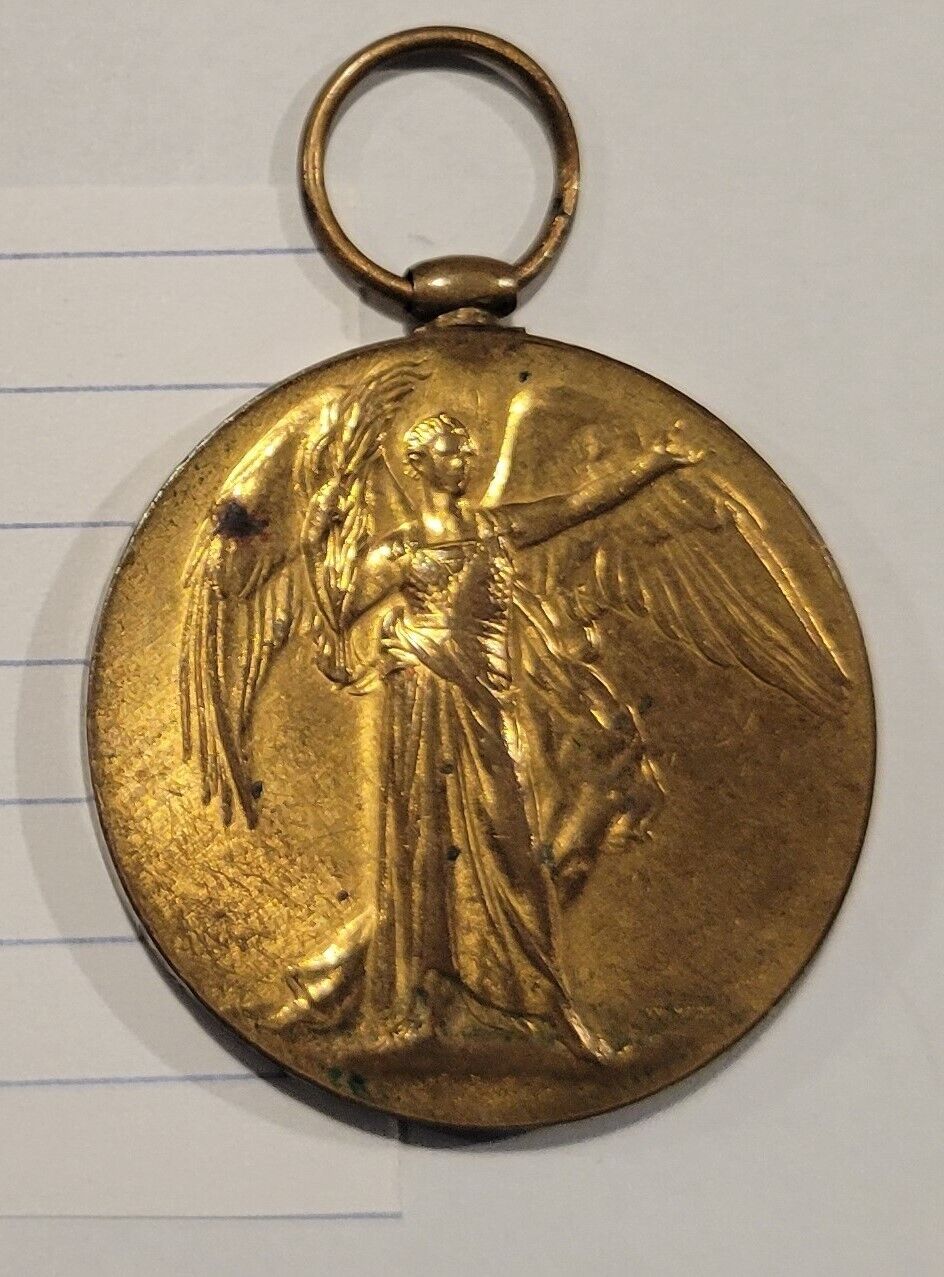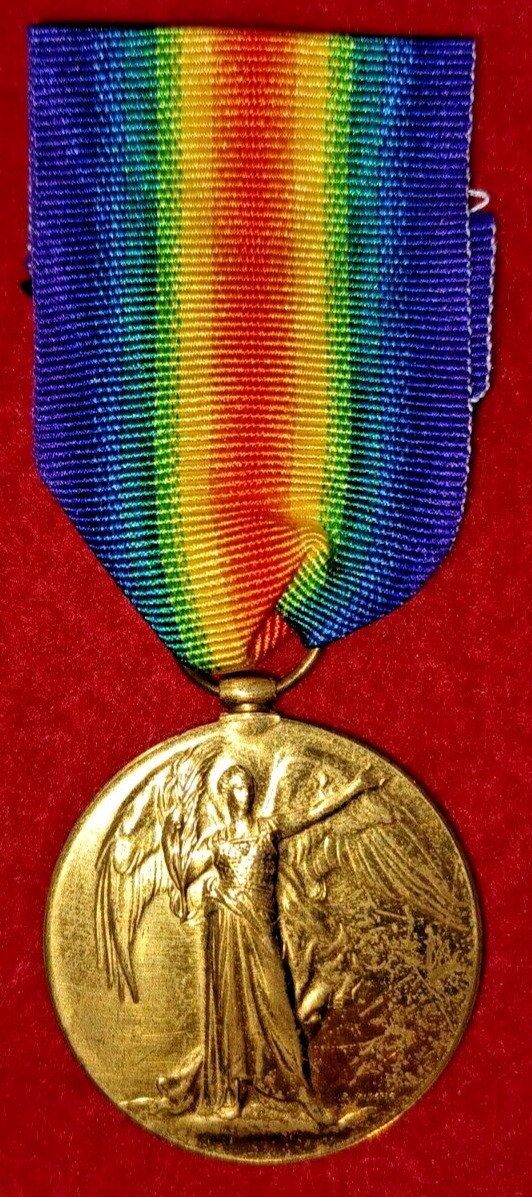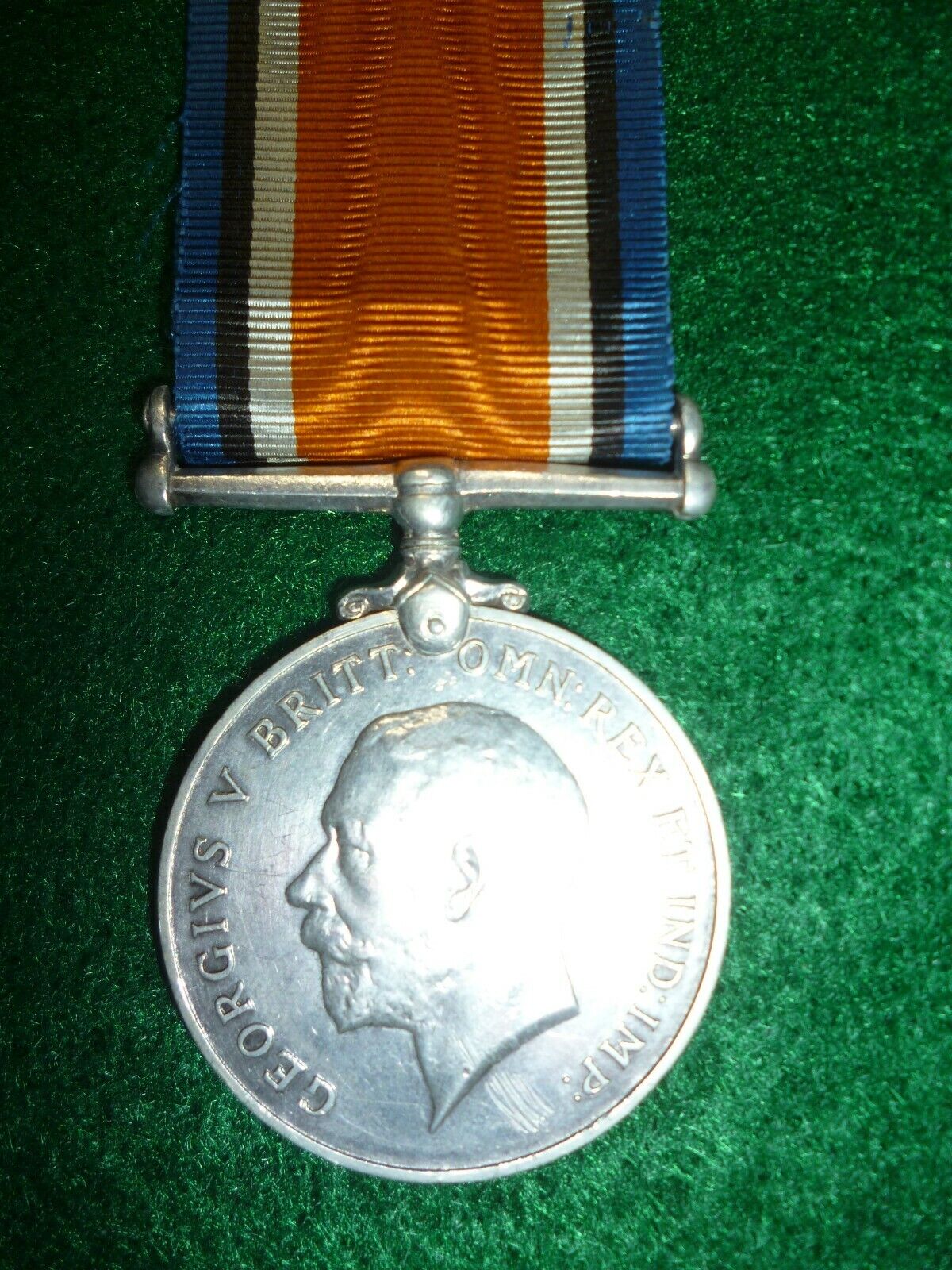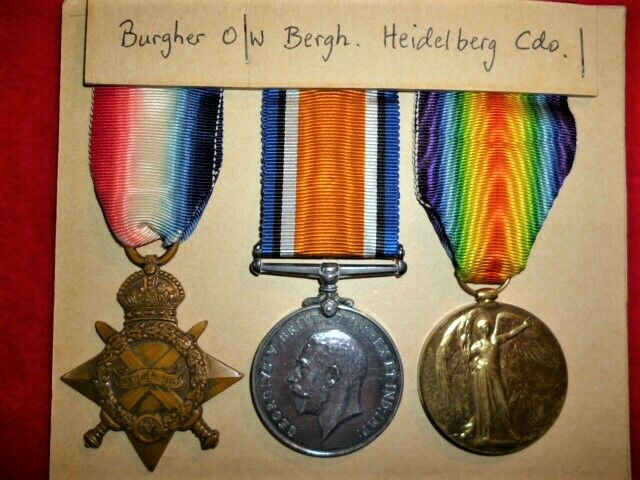-40%
WW1 British BEF DCM Medal Group Sgt HJ Slynn Mesopotamia Loyal North Lancashire
$ 3960
- Description
- Size Guide
Description
WW1 British BEF DCM Medal Group Sgt HJ Slynn Mesopotamia Loyal North LancashireGreat War 1917 ‘Diyala River, Mesopotamia’ D.C.M. and Medaille Militaire group of nine awarded to Sergeant H. J. Slynn, Loyal North Lancashire Regiment, later Lieutenant, King’s Regiment, for his gallant and inspirational conduct between 8-10 March 1917 as part of a small group which, isolated from the main British forces on the opposite side of the Diyala River, held their position for 30 hours in the face of constant Turkish attacks by bombs, machine guns and rifle fire until reinforcements could effect a crossing- for this action the officer in charge of the group, Captain Oswald Reid, was awarded the Victoria Cross
Distinguished Conduct Medal,
G.V.R. (2541 Sjt: H. Slynn. 6/L.N. Lanc: R.); 1914-15
Star
(2541 Cpl. H. Slynn. L.N. Lan. R.);
British War and Victory Medals
(2. Lieut. H. J. Slynn.);
India General Service
1908-35, 1 clasp, Afghanistan N.W.F. 1919 (2-Lt. H. J. Slynn. 2 King’s Regt.);
Defence and War Medals 1939-45; Special Constabulary Long Service Medal,
E.II.R., 2nd issue (Serjt. Horace J. Slynn);
France, Third Republic,
Medaille Militaire,
silver gilt and enamel
D.C.M.
London Gazette
18 June 1917:
‘For conspicuous gallantry and devotion to duty. He set a magnificent example to his men, and materially assisted in relieving a critical situation.’
Order of the Day No. 67 dated 2 April 1917 states: ‘Awarded the Distinguished Conduct Medal. For conspicuous gallantry when with the beleaguered garrison on the further bank of the river. By his personal courage, resource and grim determination, he conspicuously stood out as a leader and inspired all under him to maintain that spirit of the offensive which was the soul of the defence. He materially assisted in relieving a critical situation.’
Medaille Militaire
London Gazette
26 September 1917:
‘For distinguished services rendered during the course of the campaign.’
Annexe to General Routine Order No 761 dated 17 November 1917 states: ‘Awarded the Medaille Militaire by the French Republic for distinguished services rendered during the course of the campaign in Mesopotamia.’
Horace John Slynn
was born in Balsall Heath, Birmingham, on 5 June 1895, and was educated at Birmingham Technical School. He attested for the Special Reserve Battalion, Loyal North Lancashire Regiment, on 16 June 1914, and following the outbreak of the Great War was transferred in the rank of Lance-Corporal to the 11th (Reserve) Battalion, Loyal North Lancashire Regiment, on 21 October 1914. Promoted Corporal on 8 January 1915, he then transferred to the 6th Battalion on 23 August 1915, leaving the following day to reinforce the Battalion in Gallipoli where it had almost been annihilated. Shortly thereafter the decision was taken to evacuate the Gallipoli Peninsula and by the beginning of 1916 the 6th Loyals were encamped at Port Said, Egypt before being ordered to Mesopotamia, landing at Basra in March 1916. Here they formed part of the 38th (Lancashire) Infantry Brigade of the 13th (Western) Division of Kitchener's New Army. After an unsuccessful attempt to relieve a besieged British Garrison at Kut in April 1916, the 6th Loyals were part of the allied force that retook Kut in February 1917 and then, moving on towards Baghdad, were selected to force a crossing of the Diyalah River, the Turks last main line of defence. By this time Horace Slynn had been promoted to the rank of Sergeant with effect from 22 June 1916.
The Defence at the Diyala River
Attempts by 38th Brigade to force a crossing of the Diyala River during the night of 7 March 1917 bad been abandoned in the face of fierce Turkish resistance and heavy losses with men being shot down in waves as they tried to ferry pontoons across the river. A further attempt was made the following night under cover of an intense artillery barrage, and eventually around 100 men, including Horace Slynn, and four officers of the 6th Loyals reached the opposite bank and established, in a deep bund, a tiny bridgehead under the command of Captain Oswald Reid, King's Regiment attached to the 6th Loyals. Very severe fire from the Turks prevented reinforcement and for the next 30 hours this small group was repeatedly bombed, shelled and machine gunned, and fought off attack after attack, often at the point of the bayonet. Their tenacity, however, gave time to the British forces to organise crossings further up and down stream and, after relieving the 6th Loyals on 10 March, these forces moved on to Baghdad which was eventually occupied on 11 March. By the time they were relieved on 10 March the little group of 6th Loyals was down to four officers and 35 men, many of them wounded, out of bombs, and down to the last of their ammunition. The number of Turkish dead found in the immediate vicinity of the bridgehead was over 100. For his gallantry during the action Captain Oswald Reid was awarded the Victoria Cross; the three surviving officers the Military Cross; and amongst the men there were awarded two Distinguished Conduct Medals and ten Military Medals. Slynn was one of the two other ranks awarded the D.C.M., and his conduct, as stated in the original recommendation for these awards, was described by Captain Reid ‘as being perfectly magnificent and an inspiration to gallantry to all his comrades.’ He was also awarded the Medaille Militaire by the French Republic for his distinguished services in Mesopotamia, undoubtedly for the same action.
Horace Slynn remained with the 6th Loyals in Mesopotamia until April 1918 when he was posted to the Infantry Cadet Unit in India, following which he was commissioned a Temporary Second Lieutenant in the 2nd Battalion, The King's (Liverpool Regiment) on 19 August 1918. He continued serving with King's in India following the Armistice and was with the battalion when it was mobilised during the Third Afghan War in 1919. Promoted Temporary Lieutenant on 19 February 1920, he relinquished his commission on completion of service on 23 May 1921, retaining the rank of Lieutenant.
In November 1921 Slynn joined the Auxiliary Division of the Royal Irish Constabulary, a paramilitary unit of the Royal Irish Constabulary during the Irish War of Independence, which was made up of former British officers whose role was to conduct counter-insurgency operations against the Irish Republican Army. Posted to ‘J’ Company, he only served for a short period as the A.D.R.I.C. was disbanded in early 1922 following the Anglo-Irish Treaty.
Following the outbreak of the Second World War, Slynn was granted an Emergency Commission on 28 July 1940 as a Lieutenant in the Durham Light Infantry. He was transferred to the Pioneer Corps in the same rank on 28 July 1941, and thence to the Royal Air Force Regiment in July 1943. Appointed Temporary Captain on 2 October 1943, he remained with the R.A.F. Regiment until July 1945. Upon demobilisation he moved to Grantham, Lincolnshire, and subsequently served in the Special Constabulary. He died in Rauceby Hospital, Sleaford, Lincolnshire on 13 June 1978.
Comes with a large service file
